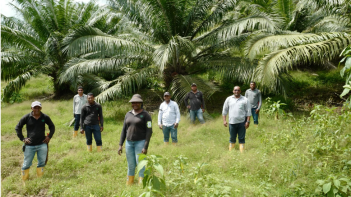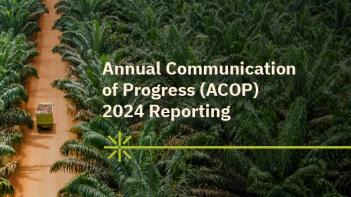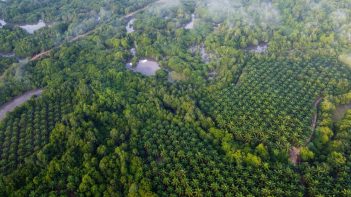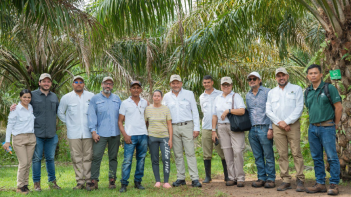WWF India’s in-depth Report on “Palm Oil Market and Sustainability in India” shows
– India is the 4th largest oilseed producing country and also the world’s largest importer of palm oil Indonesia supplies almost 73% of India’s local demand of palm oil
– In Indonesia and Malaysia, almost a third of forest loss in the last 10 years was due to the expansion of oil palm
The demand for edible oils in India has grown steadily at a Compound Annual Growth Rate (CAGR) of 4.4% from 2001 to 2011.
India is the world’s largest consumer of palm oil with 23% of the global consumption in 2011-12.
In 2011-2012, India imported about 7.2 Mn MT of palm oil. The growth has been driven by improvement in per capita consumption; however, the current per capita consumption levels of India are lower than global averages.
At the report launch, Mr. Ravi Singh, Secretary General & CEO, WWF India said, “When forests shrink, so does the home of endangered species, such as the tiger, rhino, elephant and orangutan—species which are now on the brink of extinction. 15% of all human-induced GHG emissions are caused by deforestation, forest degradation and peatland emissions.”
Adam Harrison, Senior Policy Officer – Food and Agriculture, WWF said, When these forests, also vital to communities, are cleared, people lose their land and their livelihoods— sometimes even their homes. He further added, the Roundtable on Sustainable Palm Oil (RSPO) is the best answer.
To avoid contributing to deforestation and social problems, palm oil producers, users and traders need to move towards sustainable palm oil. The report also, gives an overview of the Roundtable on Sustainable Palm Oil and global commitments made by companies, such as Unilever, McDonalds, Cargill, Kraft, Walmart to procuring sustainable palm oil.
Darrel Webber, Secretary General of the RSPO comments: “The current consumption of palm oil in India well corresponds with the existing production volume of RSPO certified sustainable palm oil which stands at more than 8 million metric tonnes, which is progressively increasing. This means India is ready to play its part by establishing commitments and policies that will allow the nation and the industry to ensure sustainable provision of certified sustainable palm oil along its supply chain.”
Bhavna Prasad, Director Sustainable Business, WWF India said, “We are pleased that Indian membership of RSPO has gone up from 4 to 21 in the past year itself. We expect these numbers to increase further, as more and more companies become aware of this issue and also start meeting global demand for sustainable palm oil”
Notes to the Editor
- The Roundtable on Sustainable Palm Oil (RSPO) has emerged as the leading mainstream standard for responsible production of palm oil. RSPO was established in 2004 by WWF, AAK, KLK, Sainsbury’s, Unilever & others to address the negative impacts of unsustainable palm oil production. RSPO brings together more than 1000 palm oil growers, oil processors, manufacturers, retailers, NGOs and palm oil investors, who have one goal in common—promoting the growth and use of sustainable oil palm.
- Palm oil is the world’s most consumed vegetable oil and is used in edible oil, in processed foods like chocolate bars, ice cream, instant noodles, and margarine. Derivatives of palm oil are also used in cosmetics, soaps, shampoos and detergents. Oil palms yield more oil per hectare of land than any other crop in the world.
- Godrej was the first Indian company to commit to sustainable palm oil. A few Indian companies have bought GreenPalm in small quantities. However, this needs to be scaled up significantly to make an impact.
Keep reading

Palmas de Tumaco: Staying, Trusting, and Transcending from Colombia’s Pacific Coast
Carry Over Credits for Certified Independent Smallholders Group

Latin American Smallholders and Global Brands met in the Peruvian Amazon to Advance Sustainable Palm Oil

From the Amazon to the Aisles: Discovering Sustainable Palm Oil in the Heart of Peru

Global Trends of Sustainable Palm Oil and China's Pathway

Final list of ACOP 2024 Non Submitters

New ISEAL Case Study Identifies Pathways to EUDR Compliance in Palm Oil Sector
Call for Expression of Interest: Nigeria National Interpretation Task Force for 2024 RSPO Principles and Criteria (RSPO P&C) and Independent Smallholder (ISH) Standard




